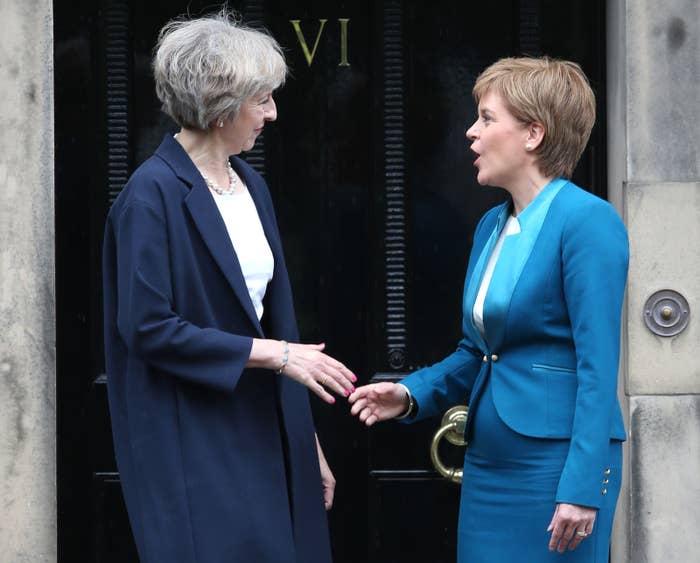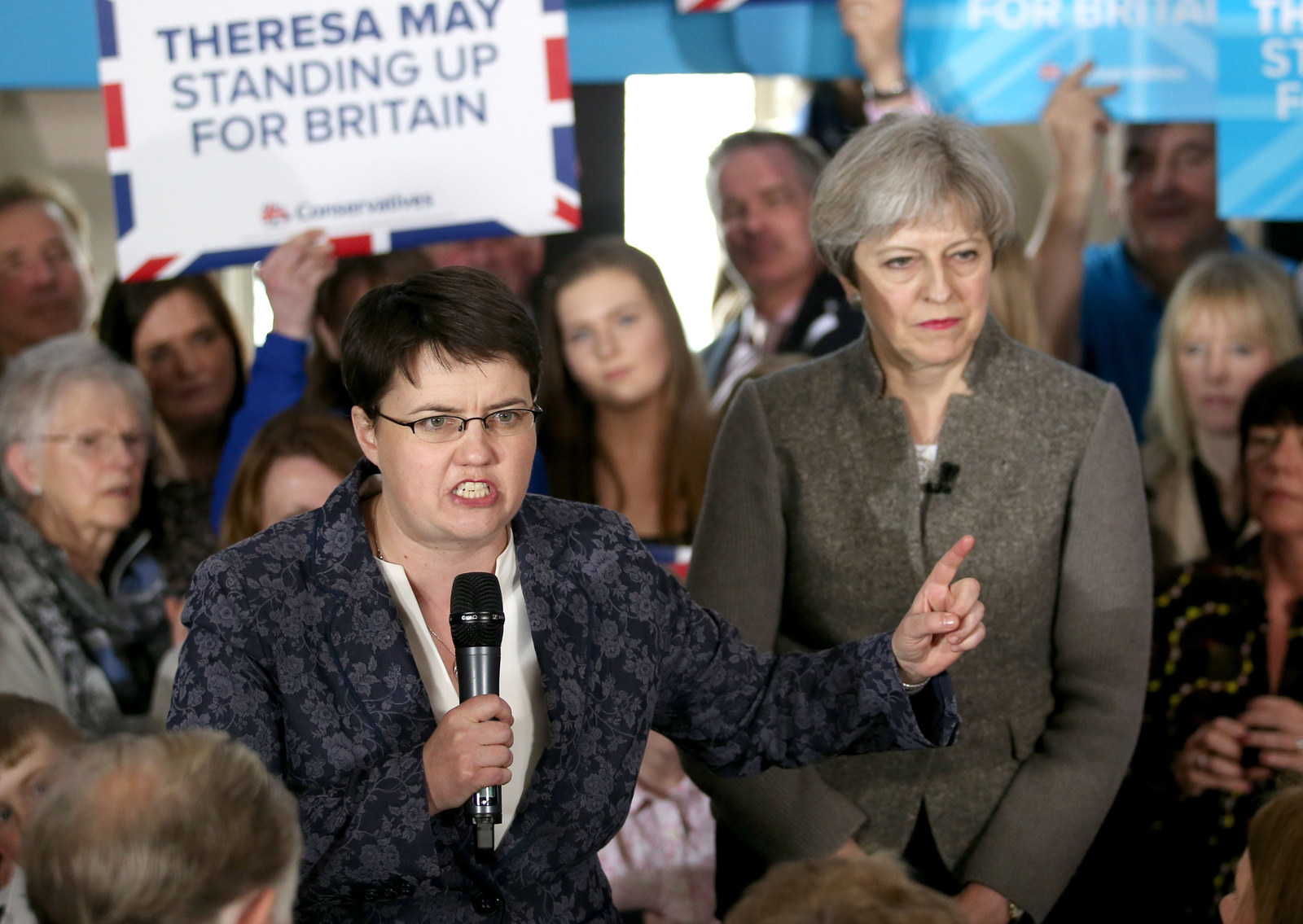
The devolved Scottish and Welsh governments have launched an official challenge against the £1 billion deal that saw Northern Ireland's Democratic Unionist Party lend its support to Theresa May's Conservatives.
After last month's election, which saw May's party fall short of winning a majority, the Conservative party struck a deal with the DUP to enter a confidence and supply arrangement that guaranteed support on major votes.
The deal provoked fury among the devolved administrations in Wales and Scotland, which felt it was unfair to give an extra £1 billion of funding to Northern Ireland with no extra money for the other countries of the UK.
On Wednesday afternoon, the Scottish and Welsh governments confirmed they had now launched an official "dispute resolution process" against the UK government and demanded that they both also receive extra funding.
The UK government argues the extra funding is not subject to the Barnett formula – which ensures fair funding to each country – as that only applies to increases or decreases in funding in England, not Northern Ireland.

However, the Scottish and Welsh governments insist that is unfair and said if Barnett rules were to be applied in the normal way, Wales would see an additional £1.67 billion of funding and Scotland would receive an additional £2.9 billion.
“The Scottish government fundamentally disagrees with the way in which this additional funding for Northern Ireland has been allocated," said the Scottish government's finance minister Derek Mackay.
"We have repeatedly made the point that all areas to which the £1 billion funding package has been allocated are devolved matters and therefore the Barnett formula should apply."
Mackay added that it "remains [his] hope" that he'd reach a resolution that results in funding for all nations of the UK that is "fair and reasonable", but said that "in order to reach a solution we need to pursue the formal dispute resolution process".
The Welsh government’s finance secretary Mark Drakeford said it was "simply inexcusable that the UK government is willing to bypass" the Barnett formula and has raised a dispute to ensure Wales is "treated fairly".

The formal dispute process, outlined in the memo of understanding between all the governments of the UK, says a dispute will firstly be attempted to be resolved between the relevant ministers of those governments.
If those talks fail, the dispute would be elevated and then be considered by an annual plenary meeting of the joint ministerial committee (JMC) of the governments. Of the four disputes raised before, none have reached this stage.
According to constitutional expert Professor Aileen McHarg, it's unlikely that such a dispute would end up in the Supreme Court. It will be decided by the JMC itself, which will ultimately favour the UK government.
"The principles for financing devolution are not contained in statute, so don't raise any obvious legal issues," McHarg told BuzzFeed News. "Neither is the operation of the dispute resolution procedure open to judicial review."
McHarg added: "Basically the JMC plenary is the end of the road, and the UK government holds most of the cards."
